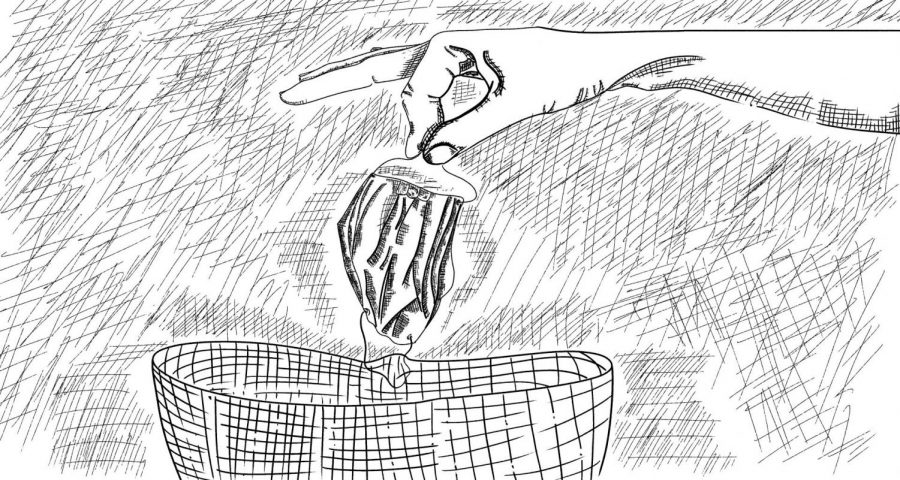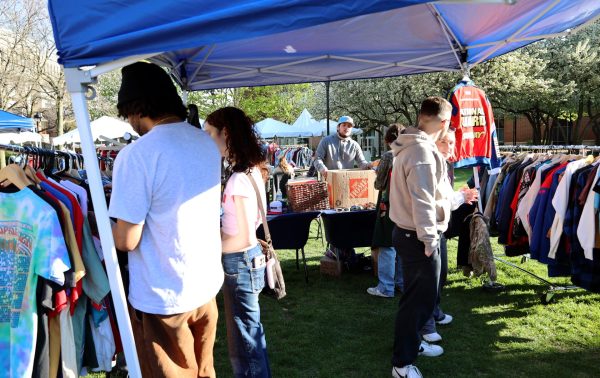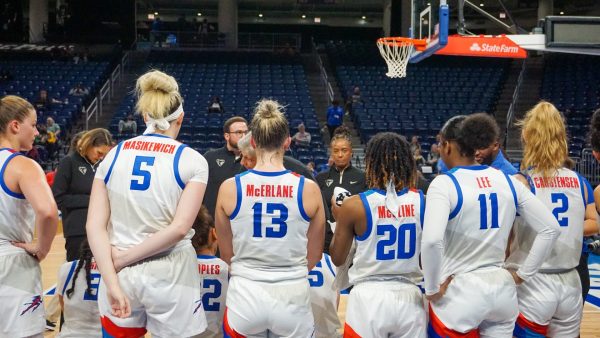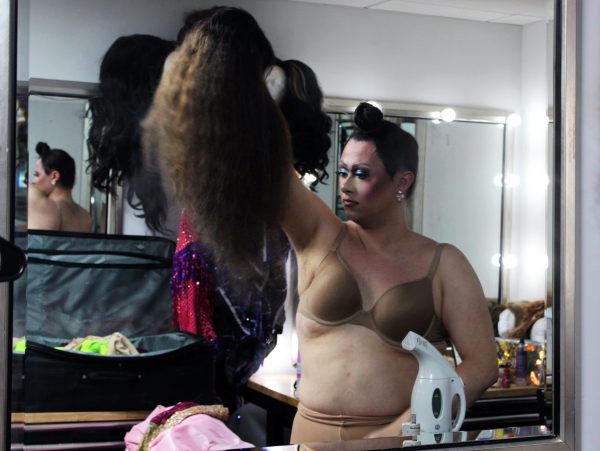Mask use amid pandemic leaves questions about sustainability
Last March, Minsu Song had been in the middle of the Disney College Program and had anticipated staying until April, but her stay in Florida was cut short due to the Covid-19 pandemic and she found herself on the next flight back to Iowa. She was unemployed and uninspired. The constant boredom led her to start making reusable masks out of scrap fabric, as at the time it was nearly impossible for her and her family to get their hands on disposable surgical masks.
Reflecting on the craziness of going home and impending changes, what would the coronavirus mean for other college students like Song, and what would it mean for our lifestyles? A life revolving around masks.
Since the start of the Covid-19 pandemic, carbon emissions have decreased due to the drastic decrease in air travel. According to an article from CNBC.com, “Global greenhouse gas emissions plunged by roughly 2.4 billion tons this year, a 7% drop from 2019 and the largest decline on record, triggered by worldwide Covid-19 restrictions.” However, this decrease is expected to rebound.
With the decrease in carbon emissions from travel, wastefulness has become a prominent topic regarding our changing lifestyles, from wearing disposable masks to ordering more food delivery with excess packaging.
Christie Klimas is an assistant professor in the Department of Environmental Science and Studies at DePaul, specializing in topics like consumer environmental behavior. There have been many changes in our sustainability habits, some bigger than others.
“The filters in masks are made of polypropylene,” Klimas said. “This takes 500 years to decompose. If not properly disposed of, these worn masks can create litter, but if people switched to reusable masks, this would reduce the amount of PPE waste, though not eliminate it.”
Song realized that disposable masks and her lifestyle were not compatible. With a family of four needing masks every day, she decided it was essential to make reusable masks to have masks that show off personality but were also sustainable for her situation.
“My family of four would hypothetically need a mask every day,” Song said. “That makes 28 masks thrown away each week or 112 a month. It just didn’t seem environmentally friendly, and now that we’re pushing on a year of this, I’m so glad I started making them early on. Not to mention, so many people just throw their masks on the ground, which creates so much unnecessary litter.”
DePaul senior Gaby Proctor conducted a group study in her senior capstone with Klimas. The study compared disposable and reusable masks to measure the harm of each to the environment.
“Our main finding was that even without considering disposal, disposable masks cause much more harm to the environment than reusable, specifically 2.62 times more, much of which is contributed to the impact of polypropylene, the main fabric used in disposable masks versus the impact of cotton, the main fabric used in reusable masks,” Proctor said.
Harm reduction has been significant in the ongoing Covid-19 pandemic, protecting the spread, but now with masks. The CDC now recommends people to wear two masks at once to further mitigate the risk of infection. According to CDC.gov, layering a disposable mask under a fabric mask is a good way to make masks more effective, but it is also fine to layer cloth masks.
Since the start of the pandemic, Song has made an estimated 600 masks; she sells her masks on Instagram (@masksxminsu) and has been able to donate profits to organizations she is passionate about. Making and wearing reusable masks has made her feel good about her sustainability efforts during these interesting times.
View this post on Instagram
Klimas and Proctor both recommend considering other forms of sustainability even if you opt for a reusable mask.
“Think before you purchase something about the environmental and social impact of that purchase,” Klimas said. “Try to purchase items that do good — benefiting those who make them with living wages and taking the environment into account during production.”.






![DePaul sophomore Greta Atilano helps a young Pretty Cool Ice Cream customer pick out an ice cream flavor on Friday, April 19, 2024. Its the perfect job for a college student,” Atilano said. “I started working here my freshman year. I always try to work for small businesses [and] putting back into the community. Of course, interacting with kids is a lot of fun too.](https://depauliaonline.com/wp-content/uploads/2024/04/ONLINE_1-IceCream-600x400.jpg)











kalpana Naturals • Jun 15, 2021 at 9:24 am
Kalpana Naturals have made a unique product known as Herba Viral Mask Supplement.
Mask Disinfectant Roll Onis best product known as Mask Supplement 5 ML Roll-On which is
additionally applied on Mask that can protect us from the virus, germs, and bacteria.